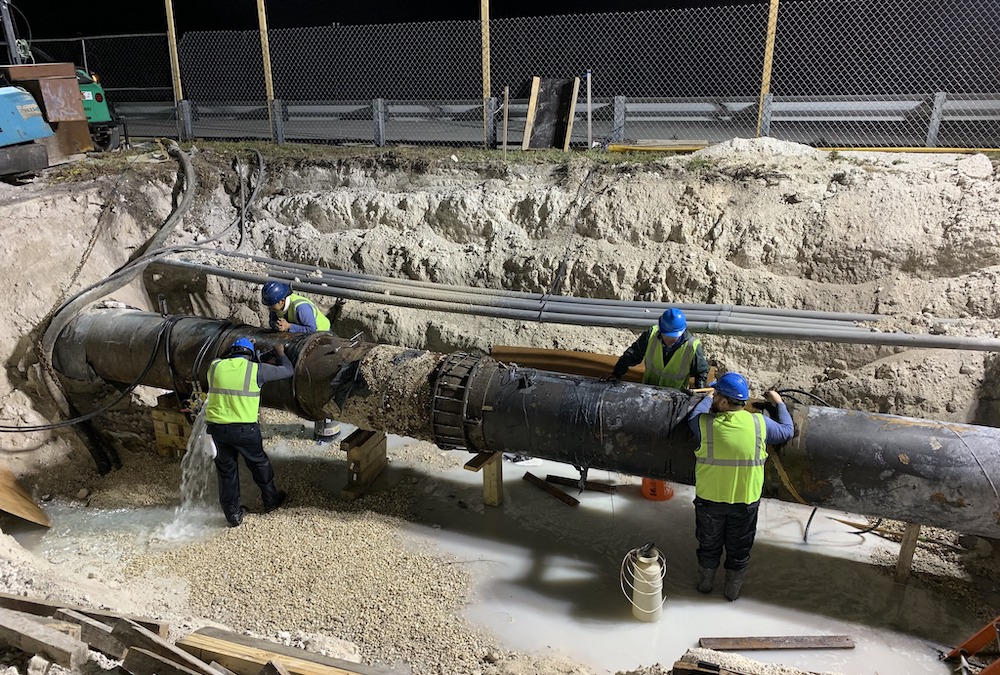
- Details
- By Tribal Business News Staff
- Energy | Environment
The U.S. Environmental Protection Agency (EPA) yesterday announced more than $225 million in funding to enhance drinking water and wastewater services for American Indian tribes and Alaska Native villages.
The funding aims to improve public health and environmental protections by addressing issues such as lead service lines and emerging contaminants like PFAS. This year’s funding is a part of $965 million in funding appropriated under the Bipartisan Infrastructure Law (BIL) to address Tribal water and wastewater infrastructure needs.
The Fiscal Year 2024 funding will be distributed through several programs:
- $69.4 million in Clean Water Indian Set-Aside through the BIL and annual appropriation funds.
- $133.8 million in Drinking Water Infrastructure Grants Tribal Set-Aside through the BIL and annual appropriation funds.
- $19.3 million in Emerging Contaminants in Small or Disadvantaged Communities Tribal Grant Program through BIL funds.
- $2.85 million in Small, Underserved, and Disadvantaged Communities Tribal Grant Program through annual appropriation funds.
This funding, part of the $50 billion allocated to EPA under the infrastructure law, builds on EPA's history of supporting American Indian communities and Alaska Native Villages with projects ranging from clean wastewater treatment to backup power systems for wastewater facilities during extreme weather events. To date, the EPA has funded 133 projects with more than $105 million through the BIL to address Tribal water infrastructure needs.
Recent EPA investments in tribal communities include:
- $1.6 million to the Tohono O’odham Nation to install an arsenic treatment facility for groundwater wells serving 1,014 homes.
- $985,778 to the San Carlos Apache Tribe to construct new groundwater wells addressing E. coli contamination.
- $1.8 million forgivable loan to the Fallon-Paiute-Shoshone Tribe for wastewater treatment enhancements.
- $2 million for the Nez Perce Tribe to reduce pesticide infiltration in the Clearwater River, benefiting salmon health.
- $600,000 to eight tribes in California for backup power generators for wastewater treatment systems.
- $989,000 to the Muscogee (Creek) Nation in Oklahoma to upgrade an overloaded wastewater treatment lagoon.
The Clean Water Indian Set-Aside program, established under the 1987 amendments to the Clean Water Act, and the Drinking Water Infrastructure Grants Tribal Set Aside, funded from the Drinking Water State Revolving Fund, are key components of this initiative.
The Small, Underserved, and Disadvantaged Communities Tribal Grant program, created under the Water Infrastructure Improvements for the Nation (WIIN) Act, also supports tribal drinking water improvements.
The Bipartisan Infrastructure Law builds on these programs to extend public health protections and improve drinking water infrastructure in more tribal communities.
EPA has prioritized projects addressing emerging contaminants and lead service line replacements. Additionally, the Alaska Rural and Native Villages (ANV) Grant Program provides $39 million for high-priority drinking water and wastewater facilities in rural Alaska.
These infrastructure projects are primarily implemented in partnership with the Indian Health Service, which collaborates with EPA in the Tribal Infrastructure Task Force. This funding marks a significant step in ensuring safe, reliable water access for American Indian Tribes and Alaska Native Villages, aligning with broader goals of public health and environmental protection.
